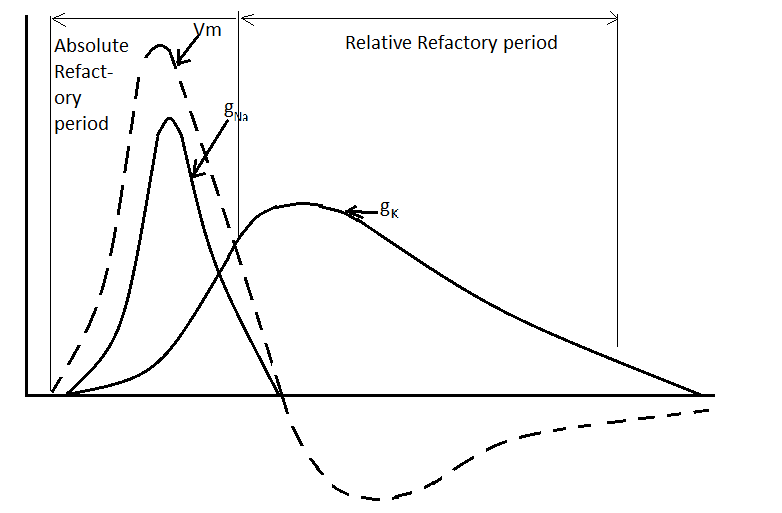- Bio-potentials are produced by certain class of cell as result of electrochemical activity of excitable cells.
- Electrically they exhibit resting potential, when stimulated they produce an action potential.
The Resting state:
- An individual cell maintains, steady state potential difference between internal and external medium is call resting potential and value lies between 40mv & 90 mv.
- The resting state is measured by micro-electrode placed close to surface of excitable cell.
- In resting state cell is slightly permeable to sodium ions(Na+) and highly permeable to potassium(K+) and chlorine(Cl-).
- This concentration difference creates diffusion gradient such interior of cell is more negative relative to external medium.
- This tend to inhibit outflow of K+ ions & inflow of Cl-.
- The diffusional and electrical forces are opposed & balance is achieved.
- To maintain ionic balance, there is requirement of active transport of ionic species against gradient.
- This active transport is given located within cell called Adenosine triphosphate(ATP).
- It transports 3 Na+ ions out of cell & 2 K+ ions into cell.
- But Na+ influx does not compensate for K+ efflux, because permeability of Na+ is much lower than K+.
The Active State:
- Another property of excitable cell that brings about depolarization of cell membrane is sufficient to exceed its threshold potential when an adequate stimulus is given.
- When adequate stimulus is given it brings depolarization within cell that must exceed threshold potential.
- At steady state membrane is polarized.
- As cell is depolarised permeability to Na+ increases.
- Na+ rushes into cell, bringing further depolarization.
- Action potential(Vm) tries to reach equillibrium potential of sodium.
- But Vm never reaches to this level because:
(i) Condutance of Na+ is not only voltage dependent but time dependent too.
(ii) There is delayed increase in condutance of K+, that brings hyperpolarizing influence, tending to restore Vm to resting level. - Vm ultimately returns to resting level.
- As K+ continue to leave cell, an undershoot is produced in transmembrane potential(Vm).
Reference: Webster
